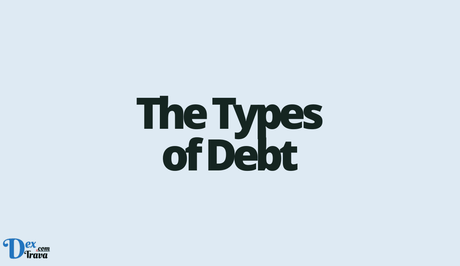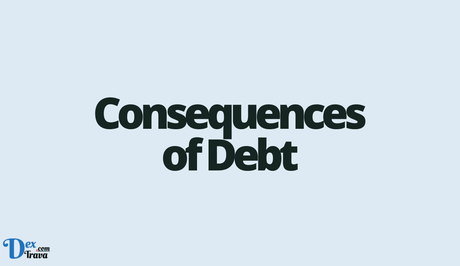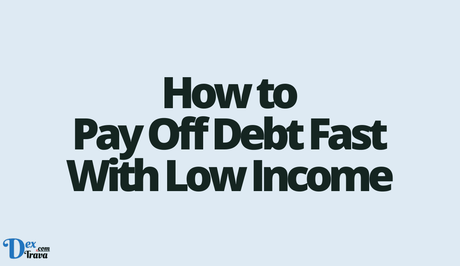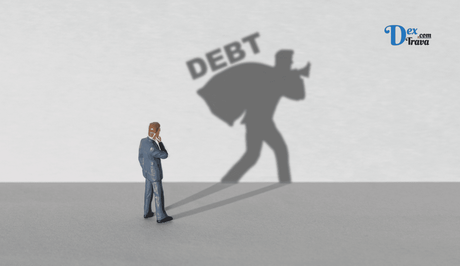As the cost of living continues to rise and wages remain stagnant, many individuals are struggling to pay off their debts on a low income. Living with debt can be overwhelming, but it's important to remember that you're not alone in this struggle. With some careful planning, dedication, and discipline, it's possible to pay off debt fast, even with a low income. In this article, we'll provide you with some practical tips and strategies on how to pay off debt fast with a low income.
Debt is a concept that affects millions of people around the world. It can be defined as an amount of money borrowed by an individual, organization, or government from a lender with the promise to repay it at a later date with interest. Debt can be a useful tool to finance large purchases, but it can also be a burden that hinders financial growth.
Debt is an obligation that arises when one party borrows money from another party. The borrower agrees to repay the loan amount, along with interest, in instalments over a period of time. The lender is usually a financial institution, such as a bank, but it can also be an individual or a government.
Also, See:
- How to Create a Budget Spreadsheet
- Debt Consolidation, Management and Settlement
Types of Debt

There are two main types of debt: secured and unsecured debt. Secured debt is backed by collateral, such as a car or a house, which the lender can seize if the borrower defaults on the loan. Unsecured debt, on the other hand, is not backed by collateral, and the lender cannot seize any assets if the borrower defaults on the loan.
Another type of debt is revolving debt, which is a line of credit that the borrower can repeatedly use up to a certain limit. Examples of revolving debt include credit cards and home equity lines of credit.
Consequences of Debt

While debt can be useful in financing large purchases, it can also have negative consequences. High levels of debt can lead to financial stress and difficulties in making timely payments, which can result in late fees, penalties, and a damaged credit score.
If a borrower defaults on a loan, the lender can take legal action to recover the debt, which can result in wage garnishment, property seizure, or even bankruptcy. Additionally, high levels of debt can limit an individual's ability to save for retirement, purchase a home, or achieve other financial goals.
How to Pay Off Debt Fast With Low Income

-
Make a list of all your debts
The first step in paying off debt fast is to take stock of all your outstanding debts. This includes credit card balances, personal loans, car loans, student loans, and any other debts you may have. Once you've listed all your debts, make a note of the interest rate, minimum payment, and total balance for each one.
-
Create a budget
Creating a budget is an essential step in paying off debt fast with a low income. A budget allows you to identify areas where you can cut back on your spending and redirect those funds towards paying off your debts. Start by listing all your sources of income and all your monthly expenses. Make sure to include any debt payments you need to make each month.
-
Prioritize your debts
Once you have a clear picture of all your debts and expenses, it's time to prioritize your debts. The two most common methods for prioritizing debt payments are the debt avalanche method and the debt snowball method. The debt avalanche method involves paying off your debts in order of highest interest rate to lowest interest rate. The debt snowball method involves paying off your debts in order of smallest balance to largest balance. Both methods have their pros and cons, so choose the one that works best for you.
-
Negotiate with creditors
If you're struggling to make your debt payments on a low income, it's worth contacting your creditors to see if you can negotiate a lower interest rate or a more manageable payment plan. Many creditors are willing to work with you to come up with a solution that works for both parties.
-
Cut back on expenses
Cutting back on expenses is a crucial step in paying off debt fast with a low income. Take a look at your budget and identify areas where you can reduce your spending. This might mean cutting back on dining out, cancelling subscription services, or finding more affordable alternatives for your everyday expenses.
-
Increase your income
Increasing your income is another way to pay off debt fast. Consider taking on a part-time job, freelancing, or selling items you no longer need. Every extra dollar you earn can go towards paying off your debts faster.
-
Use windfalls to pay off debt
If you receive any unexpected windfalls, such as a tax refund or work bonus, use that money to pay off your debts. While it may be tempting to use the money for something else, paying off debt will ultimately put you in a better financial position in the long run.
-
Seek professional help
If you're struggling to pay off your debts on a low income, it may be worth seeking professional help. Consider reaching out to a credit counseling agency or a financial advisor who can help you develop a plan to pay off your debts and improve your overall financial situation.

Conclusion
Paying off debt fast with a low income requires discipline, dedication, and a well-thought-out plan. By creating a budget, prioritizing your debts, cutting back on expenses, increasing your income, and using windfalls to pay off debt, you can make significant progress towards becoming debt-free. Remember, it's important to seek professional help if you're struggling to manage your debt on your own. With the right strategies and support, you can take control of your finances and achieve financial freedom.
Similar posts:
- How to Create a Budget Spreadsheet
- How to Create and Use a Budget
- 11 Ways to Save Money Fast on a Low Income
- How to Pay Off Your Credit Card Debt
- Debt Consolidation, Management, Settlement, Bankruptcy: Which is best?
